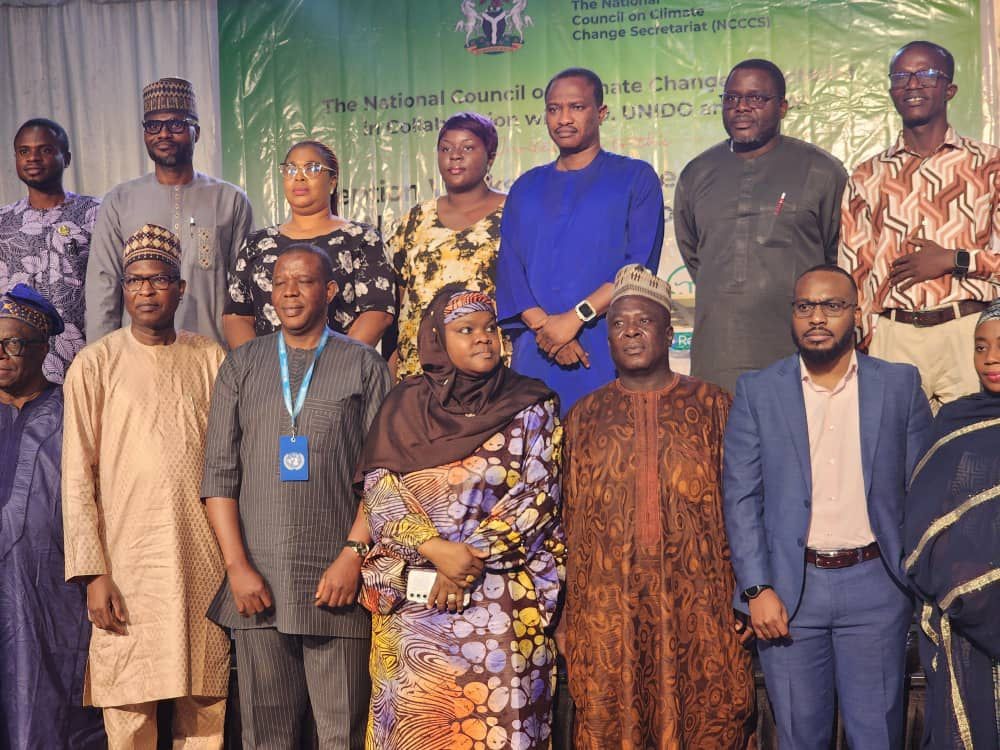ENVIRONMENT

STAKEHOLDERS TO CREATE A ROADMAP FOR A LOW-CARBON ECONOMY.
On Thursday, the Federal Government and stakeholders began planning the development of Nigeria’s Just Transition Guideline to ensure a fair and inclusive transition to a low-carbon economy.
At the kickoff workshop for the development of Nigeria’s Just Transition Guideline, organized by the National Council on Climate Change Secretariat in collaboration with the International Labour Organisation, the United Nations Industrial Development Organisation, and the United Nations Development Programme, Dr. Nkiruka Maduekwe, Director General and CEO of the National Council on Climate Change Secretariat, emphasized that Nigeria’s climate policies must protect livelihoods, support vulnerable communities, and promote shared economic growth.
Maduekwe, who also serves as the Special Presidential Envoy on Climate Change, highlighted that climate-related policy frameworks, such as Nigeria’s National Development Plan, Energy Transition Plan, National Bioeconomy Strategic Framework, and the Climate Change Act, offer a roadmap for inclusive and sustainable economic transformation.
Represented by Halima Bawa-Bwari, Maduekwe further explained that a Just Transition framework will ensure that the shift to renewable energy and a low-carbon future aligns with this vision by incorporating policies that protect workers and communities, particularly those reliant on fossil fuel industries, all while focusing on sustainability, economic inclusion, and resilience. "Our commitment to Nationally Determined Contributions highlights Nigeria's ambition to reduce greenhouse gas emissions while fostering green growth opportunities. The Just Transition Guideline we are developing will be crucial in achieving these goals through socially responsible and economically feasible strategies.
"Furthermore, nature-based solutions will be essential to our transition, boosting climate resilience, restoring ecosystems, and creating sustainable green jobs. By utilizing our natural resources, such as mangroves, we can ensure that climate action aligns with economic growth, enhanced food security, and environmental sustainability," she said. She further emphasized that the Just Transition is not just about environmental or economic factors; it requires active collaboration among the government, private sector, civil society, and development partners to create policies that address potential challenges while maximizing new opportunities.
A joint statement from the ILO, UNDP, and UNIDO, delivered by Stephen Agugua, stressed that the development of the guideline is essential for tackling the challenges and seizing the opportunities presented by the transition to a sustainable, low-carbon economy.
The UN agencies highlighted that Nigeria is committed to fulfilling its international responsibilities, including the Paris Agreement and the Sustainable Development Goals, as it works to address climate change and advance sustainable development within the country.
"This represents a significant development in our ongoing coverage of current events."— Editorial Board









